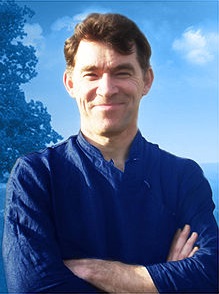Guest writer for Wake Up World
A few days ago, while playing tennis on a concrete court in the park, I lost my footing. My friend hit a spectacular shot to the edge of the court, which I misguidedly chased and attempted to return. I landed painfully on my chest and ended up with bruised ribs and several cuts and grazes.
The interesting thing about the incident was not the fall itself, but the subjective mental experience which accompanied it. In real time, the fall could not have lasted more than a second, but to me subjectively, it seemed to last for much longer. Somehow there was time for detailed thought processes, with a strange sense of calmness and detachment.
This is a minor example of a phenomenon which I call a ‘Time Expansion Experience’ (or TEE). Recently I conducted a research study of these experiences. Following a pilot study of 22 TEEs specifically linked to accidents, I collected 74 general reports of TEEs. I found that 40 of the reports were linked to accidents (mostly car accidents). 12 were linked to meditation or spiritual experiences, while 7 were linked to sports and games, and another 7 were linked to psychedelic drugs.
Most people described their TEEs as very positive experiences. Almost everyone reported a sense of calmness, despite the danger they were (in most cases) facing. Most people reported a sense of alertness or even heightened awareness. They felt that their slowed-down sense of time gave them the opportunity to take preventative action. They reported rapid and detailed thinking, with more time to make plans and decisions. As one participant who had a car accident reported, ‘I will always remember how much time I seemed to have to think and work things out.’ Some people also reported a sense of quietness, as if noise from their surroundings had become muffled.
In many cases, the time expansion was very dramatic. Seconds seemed to turn into minutes, or time seemed to stop or disappear altogether. As one participant who had a TEE during a hockey game reported ‘The play which seemed to last for about 10 minutes… occurred in the space of about 8 seconds.’
The ‘Recollective’ Theory
Such experiences have been studied before, of course. In 2007, Chess Stetson, Matthew Fiesta and David Eagleman conducted an experiment to try to find out whether people really do experience a slowing down of time perception in emergency situations. People made free fall jumps (for 31 meters) before landing in a net. To see if they were able to process more information than normal, the jumpers wore a chronometer on their wrists, and were asked to read the numbers on it during their fall. However, they were unable to see numbers. Despite this, the participants retrospectively overestimated their own falls by 36%, compared with the falls of others.
The authors concluded that this shows that an expanded sense of time in emergencies is based on memory rather than perception. In emergency situations, people become alert, and absorb more impressions and perceptions than normal. According to the authors, these extra impressions are ‘encoded’ in memory, so that, when we recollect the experiences, it seems as if they lasted a long time.
However, there are some issues with this theory and the experiment that allegedly supports it. One issue is that the jumps were not a real emergency. Real emergencies are unexpected and involve real danger. The participants of the above experiment were fully aware in advance of the nature of activity and aware that it did not involve real, life-threatening danger (since they had a safety net). The jumps were not dramatic or sudden either, since the participants had to undergo preparations, climb up to the tower, and wait. , while watching others make the jump before them.
The fact that the participants only overestimated their falls by 36% also suggests that they did not experience the same type of TEE as the participants of my study. Almost all the participants of my research described a much more dramatic time expansion.
The participants of my studies certainly had a strong subjective sense that they were experiencing time expansion in the moment rather than as a recollection. As noted above, many people were convinced that their TEEs enabled them to plan and execute actions which would have been impossible to do in normal time. For example, a woman who saved her children from a fire reported, ‘I think the only reason I was able to do this [save her children] was that I first experienced a great calmness and then that time seemed to stop.’
It is possible that all of this could be a recollective effect. Perhaps the participants simply believed that time slowed down because they were able to react and to think so quickly. However, in my view it is more likely that they were able to react and think so quickly because time was moving very slowly to them. In many cases, it appears impossible that such complexity of thought and action could fit into such a short period of time.
Explaining TEEs
So if TEEs are authentic experiences rather than an illusion of recollection, how can we explain them?
Perhaps TEEs are an adaptive trait that our ancestors developed as a way of increasing their chances of survival in dangerous situations. It would certainly have been beneficial for our early human ancestors—surrounded by wild animals and dangerous natural phenomena—to develop the ability to slow down their experience of time in emergency situations. However, this doesn’t explain why TEEs occur in nonemergency situations, such as meditation and psychedelics.
Theorists have suggested factors such as increased levels of norepinephrine in the brain, related to the ‘fight-or-flight’ response, and a high level of ‘emotional salience.’ However, the most common theme of TEEs (in accidents and other situations) is calmness and a sense of wellbeing, which doesn’t fit with higher levels of epinephrine, or a high level of emotional salience. In addition, as we have seen, TEEs don’t just occur in accidents and emergencies but also in non-emergency situations such as sports, psychedelics, meditation, and listening to music. With the possible exception of sport, none of these are situations in which one would expect to find high levels of norepinephrine. In fact, states of meditation (and other relaxed states—for example, listening to classical music) are usually experienced as states of stillness and inner peace, in stark contrast to a fight or flight response, or a high degree of emotional salience.
In my view, TEEs are linked to altered states of consciousness. As I argued in my earlier book Making Time, our normal time perception is related to our normal state of consciousness. It is produced by the psychological structures and processes that operate in a normal state. When our state of consciousness alters, we experience different modes of time perception.
This is why TEEs are often linked to meditation, spiritual experiences and psychedelic experiences. Accidents and emergencies clearly have the capacity to bring about a shift into a dramatically altered state of consciousness, due to their sheer shock and intensity. They can suddenly ‘jolt’ us out of normal consciousness – and therefore also out of our normal ‘timeworld,’ into a new realm where time opens up, as if we’ve stepped through narrow passageway into a panoramic landscape.
Originally published at Psychology Today and reproduced with permission.
Recommended articles by Steve Taylor, Ph.D:
About the author:
Steve Taylor is a senior lecturer in Psychology at Leeds Beckett University, UK. His latest books in the US are The Calm Center and Back to Sanity: Healing the Madness of the Human Mind. He is also the author of The Fall, Waking From Sleep, and Out Of The Darkness. His books have been published in 19 languages. His research has appeared in The Journal of Transpersonal Psychology, The Journal of Consciousness Studies, The Transpersonal Psychology Review, The International Journal of Transpersonal Studies, as well as the popular media in the UK, including on BBC World TV, The Guardian, and The Independent.
Connect with Steve at StevenMTaylor.com.
Related posts:
Views: 0
 RSS Feed
RSS Feed

















 September 3rd, 2020
September 3rd, 2020  Awake Goy
Awake Goy 



 Posted in
Posted in  Tags:
Tags: 
















